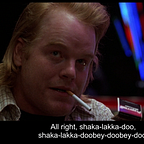“Malcolm & Marie,” Mystery, and Context
Mystery can be incredibly valuable to a film and the conversation around it. It can force viewers to remain engaged during a movie, asking “what’s going to happen next?” It can also create discussion afterward; friends debate what they think the ending meant or what message they took away from the film.
The idea of mystery is a topic in Sam Levinson’s new film Malcolm & Marie. As Malcolm rants on about the failures of modern film criticism he shouts, “It’s all a fucking mystery is the point. What drives a filmmaker? What drives an artist?…That is the mystery of art. Of film. What drives someone to make something and fucking say something.” Malcolm argues that critics' necessity to explain and frame everything through simple lenses restricts discussion around movies, consequently hurting when they are trying to help.
Malcolm isn’t incorrect. As argued above mystery can be incredibly powerful for works of art. The problem with this argument, made by this particular character, in this particular film, is that it lacks any mystery at all.
Much has been made about what feels like pointed attacks in Malcolm & Marie. Malcolm’s rant about film criticism is ignited by a review from a critic, a white woman who works at the L.A. Times. This “white lady” is referenced many times throughout the film. Many have pointed out it seems to be a fairly direct stand-in for critic Katie Walsh, who wrote a negative review of Levinson’s previous film Assassination Nation (2018).
What’s ironic about Malcolm's rant is that there is no mystery if you’re clued into who wrote Malcolm. Even if you don’t know about the poor reviews for Levinson’s last film, written by Katie Walsh or several others (there were also positive reviews by the way), it wouldn’t take much brainpower to figure out that Malcolm, since his character literally is a filmmaker, is acting as a mouthpiece for his creator, also a filmmaker. Since we know this, there is no point in asking “What drives a filmmaker? What drives an artist?” We already know what’s driving Malcolm, and subsequently Levinson. It’s a petty squabble.
Herein lies my largest problem with Malcolm & Marie. It clearly wants to point out hypocrisies while unable to recognize its own. “Ban every fucking film with a postscript,” Malcolm shouts. Malcolm also frequently praises Spike Lee’s Do the Right Thing (1989), a film that ends with quite a powerful post-script! One that, in some people’s eyes, creates mystery and conflict over the film’s intended message.
Despite all the desperate pleas for mystery in Malcolm’s aforementioned rant, Levinson does little to dig below the surface and ask questions. Images of Malcolm & Marie reflected in mirrors or standing outside while framed by window panes inside don’t take intense provocative thought to find a message, let alone force us to ask “What drove the filmmaker to make this? What are they trying to say with this?”
If someone watched Malcolm & Marie with zero prior knowledge about Sam Levinson or his prior works, would they feel the same way about this as me? Maybe they wouldn’t be as frustrated and disappointed, but I’d still like to believe that most people would see through the facade that is using a protagonist as a mouthpiece so that you can air your professional beef, and find it petty.
…
I’d argue that Levinson didn’t go far enough with his lack of mystery and subtlety. In this era where answers are at our fingertips, there’s very little benefit from partially hiding behind some work of art or some character. If someone who watches Malcolm & Marie didn’t know Sam Levinson’s backstory, it would only take a minute of searching to find out. There’s no purpose in trying to hide from something that you cannot control, people will find out you’re Sam Levinson, maker of the poorly reviewed Assassination Nation and son of Academy award-winning director Barry Levinson, at some point or another.
And in many cases that wouldn’t matter. It didn’t matter for much of Rob Reiner’s filmography. I don’t think Sam’s life or professional history, even though it’s documented that he’s struggled with addiction, was at the forefront of discourse about Euphoria or Assassination Nation, nearly as much as it is with Malcolm & Marie. But in this case, since Malcolm feels like such a direct voice for Levinson himself, then Levinson becomes the focus of the movie, rather than his characters having their own persona.
Marie mentions that neither of Malcolm’s parents is a filmmaker. In my opinion, Malcolm & Marie would’ve been better off if Levinson was more authentic, something Malcolm and Marie debate intensely throughout the film. If Malcolm had been the son of a famous filmmaker, worrying about his directorial debut, arguing with Marie about his lack of gratitude, his self-obsessive ego, and his extreme desire for his work to be appreciated properly, then the film could have had some more mystery and intrigue. We the viewer, with or without the knowledge could ask then ask “What drove the filmmaker to make this openly self-reflective work at this point in his career?” At least there would have been some tension, some mystery surrounding the answer to that question.
Near the end of the film, Marie says to Malcolm “And I loved you unconditionally. Why? Because I value mystery. The unknown. It’s what supports the tension of a relationship and forces us to be the best version of ourselves.” Given the lack of mystery surrounding Malcolm & Marie, I think the viewer’s relationship with the movie lacks any tension or intrigue, and the film is most definitely not the best version of itself.
